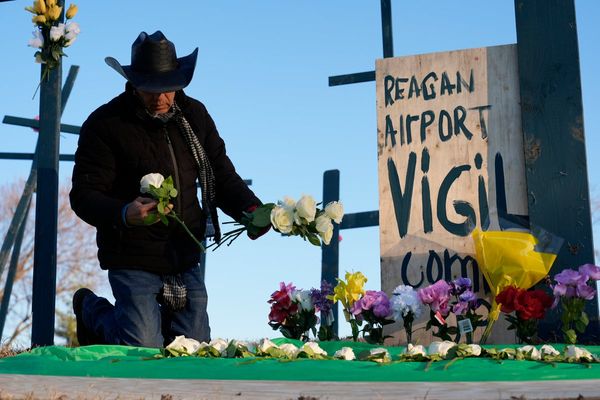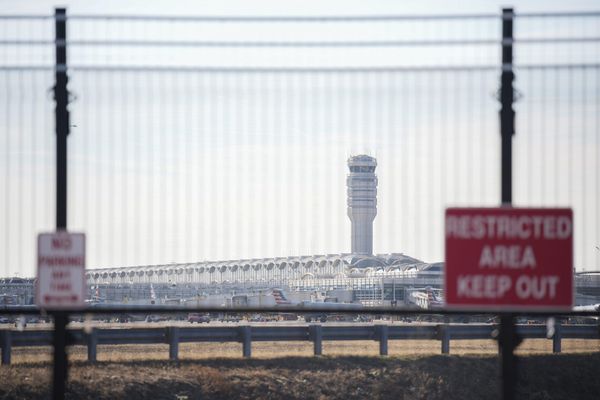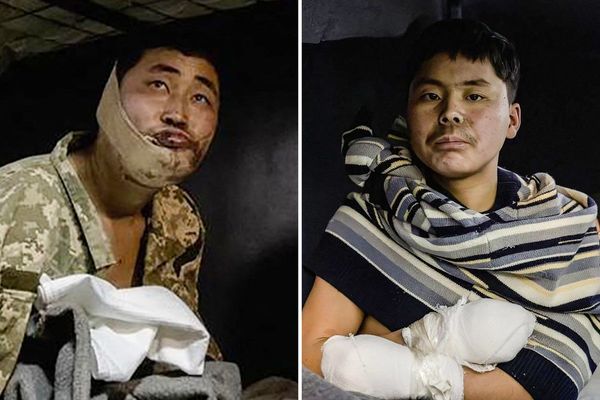
The handful of tweets, all dated and neatly set out in one paragraph in the 87-page judgment, read like a chilling indictment of the nation.
The first warns of the lack of open air: “There’s not any outdoor space for breathing … We have been locked up in hotels … No trees, no breath”. This same disquiet manifests again two weeks later: “There’s no outdoor space for breathing here”, the tweet says. “We need help please…”
Over the months that follow, the author’s burgeoning mental anguish folds into physical collapse: “They have taken the sky away from us”, one tweet says; “our bodies are getting weaker day by day”, says another. “[We] are deprived of sunlight.”
Six months later comes the erasure and extinguishment of personhood: “The Australian government are diminishing our lives … minimising our existence … our life is the size of a small room.”
And then finally, almost a year since the first tweet, comes the unfiltered truth, the crusade of bureaucratic sadism having met its desired end: “There’s no[t] any proper medication here”, the tweet says. “They are torturing us. We cannot breathe. They are harassing us. They are demonising refugees.”
And so there it is, in as little as 200 words: an uninterrupted and calculated descent into inhumanity. A mirror to the nation, amplifying the scriptures of a special kind of political malaise and hatred of refugees from which the right has long profited, never mind the grotesque violations of international law at hand.
The tweets belong to Mostafa Azimitabar, a Kurdish refugee in his 30s with severe asthma and PTSD, who was transferred to Australia in November 2019 under the medevac legislation after having spent more than six years languishing in the purgatory that is our notorious offshore refugee prison camps.
Instead of receiving timely and proper medical care, however, Azimitabar found himself yet again a victim of the country’s indifference to refugees, having been confined to a small, frowsty hotel room for 14 months in conditions legal experts this week described as an affront to basic human rights.
And yet, his tweets are not in truth a full confession of the moral decay visited on him in our nation’s name. Like all detainees, he was on one level made to feel like a criminal, relegated to something close to solitary confinement, with hundreds of pat-searches, handcuffing for medical appointments, twice daily headcounts, room searches and a relentless and overbearing security presence.
On another level, he was reduced to something less than a criminal: a person with even fewer rights, having had a number replace his name, his communications with support persons spied upon, scrutinised and internally reported, his personal property confiscated to no end, and his window in one of the hotels tinted so as to deprive him of a connection with the outside world.
Against this backdrop, it might strike you as decidedly odd the Federal Court determined on Thursday that Azimitabar’s hotel detention was lawful, notwithstanding the absence of what it called “ordinary human decency”.
Yet in reality, and in a sad reflection of the state of Australian law, the decision wasn’t surprising, not even remotely. It owes to decades of High Court precedent that’s construed the minister’s power under the Migration Act to indefinitely detain certain non-citizens, such as refugees and asylum seekers, as both expansive and lawful, and which simultaneously has severed all analysis of the legality of detention from the conditions which colour it.
In other words, the case turned on the power of the government to declare hotels a site of immigration detention, not on the inhumanity the harsh conditions gave expression to.
Stepping back, what lies before us is a real-life example of the scepticism the great Hannah Arendt expressed at the notion of universal or inalienable human rights. It’s not enough, as she pointed out, to state the existence of such rights; they need to be somehow guaranteed or anchored to something. And invariably, absent any human rights legislation, this “right to have rights” is achieved via citizenship — something refugees plainly lack.
It bears pointing out, however, that successive governments since the days of John Howard haven’t been content to merely strip refugees and asylum seekers of much of their legal personhood. They’ve encouraged or at minimum enabled forms of detention that also deny them their humanity, tolerating reports of beatings, rape, child sexual assaults and conditions akin to torture, unmoved by those who see suicide and self-immolation as preferable to living.
Indeed, many politicians, most notably Peter Dutton, Alan Tudge and Scott Morrison — or even casting back to Peter “Children Overboard” Reith — have turned such reports on refugees and asylum seekers themselves, peddling false narratives that paint them as “murderers, rapists and paedophiles” or immoral people who are otherwise “trying it on” should they complain about being raped or needing an abortion.
The refugee is deemed to be worthy of neither what’s theirs under international law nor what constitutes the essence of being a human. The moral costs of this story are indeterminable; its human cost, incalculable. A story without decency and with no end.
It’s true thousands of refugees on temporary visas have been granted permanent protection in recent months, and that detention camps in Nauru are now empty. But belying this progress is the absence of any certainty over who we’ve left behind in Papua New Guinea, the government’s dismissive response to the Australian Human Rights Commission’s report on hotel detention, and, not least, its refusal to dismantle the spectre of offshore detention.
The upshot is the promise of certain uncertainty for anyone who arrives by sea seeking asylum, and a future devoid of hope.
As Azimitabar put it yesterday after the judgment: in Australia it runs contrary to basic human decency for a person who is suffering “from asthma, from PTSD, to be locked up in a room”, but it’s lawful for the government to “put sick people inside a hotel and use it as a prison”.
If that seems soulless and cruel, it’s because it is.







